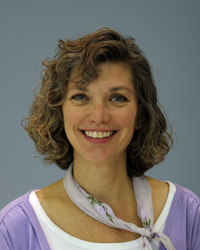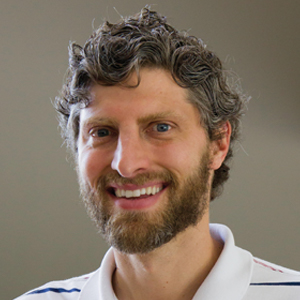Kim Orth’s efforts ‘nothing short of dazzling’
Kim Orth, professor of molecular biology at the University of Texas Southwestern Medical Center at Dallas, has been named the winner of the American Society for Biochemistry and Molecular Biology Young Investigator Award.
 Kim Orth
Kim Orth
About the award
The ASBMB Young Investigator Award (formerly the ASBMB/Schering-Plough Research Institute Award) recognizes outstanding research contributions to biochemistry and molecular biology. The recipient must have no more than 15 years postdoctoral experience. The award consists of a plaque, $5,000, transportation, and expenses to present a lecture at the 2012 ASBMB annual meeting.
Orth received the award in recognition of her seminal discoveries of the molecular mechanisms that virulence factors from pathogenic bacteria (including those responsible for the plague and food poisoning) use to manipulate host cell signaling systems to promote infection. These bacterial factors disrupt the host’s defense mechanisms, allowing the bacteria to survive and replicate by tipping the balance of homeostatic signaling pathways in favor of the invading pathogen.
For Eric Olson, also from UT-Southwestern, Orth’s work “represents a unique convergence of biochemistry and cellular biology with the basic mechanisms of infectious disease.” Jack Dixon, vice president and chief scientific officer at the Howard Hughes Medical Institute, agreed. “Kim’s efforts were nothing short of dazzling,” he said.
“I feel extremely honored to win such a prestigious award for our scientific endeavors,” said Orth. “I credit much of this success to the skilled people I have had the privilege to mentor, the first-class, collegial environment at UT-Southwestern, and my supportive friends and family.” A scientist to the bone, Orth also made sure to credit the “clever bacterial pathogens that evolved magnificent mechanisms to manipulate cellular signaling and who make science so much fun.”
After an undergraduate career at Texas A&M University, Orth received her master’s in biological chemistry at the University of California, Los Angeles, before moving to UT-Southwestern, where she spent three years as a research associate before beginning her Ph.D. program, which she finished in 1995. After a postdoctoral fellowship at the University of Michigan, Orth returned to UT-Southwestern in 2001, where she has been ever since.
Orth will receive her award during the Experimental Biology 2012 conference in San Diego, where she will deliver an award lecture. The presentation will take place at 2:55 p.m. April 24 in the San Diego Convention Center.
Enjoy reading ASBMB Today?
Become a member to receive the print edition four times a year and the digital edition monthly.
Learn moreGet the latest from ASBMB Today
Enter your email address, and we’ll send you a weekly email with recent articles, interviews and more.
Latest in People
People highlights or most popular articles

The data that did not fit
Brent Stockwell’s perseverance and work on the small molecule erastin led to the identification of ferroptosis, a regulated form of cell death with implications for cancer, neurodegeneration and infection.

Building a career in nutrition across continents
Driven by past women in science, Kazi Sarjana Safain left Bangladesh and pursued a scientific career in the U.S.

Kiessling wins glycobiology award
She was honored by the Society for Glycobiology for her work on protein–glycan interactions.

2026 ASBMB election results
Meet the new Council members and Nominating Committee member.

Simcox wins SACNAS mentorship award
She was recognized for her sustained excellence in mentorship and was honored at SACNAS’ 2025 National Conference.

From humble beginnings to unlocking lysosomal secrets
Monther Abu–Remaileh will receive the ASBMB’s 2026 Walter A. Shaw Young Investigator Award in Lipid Research at the ASBMB Annual Meeting, March 7-10 in Washington, D.C.

